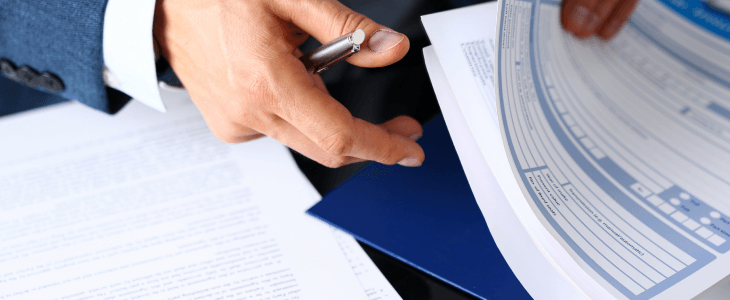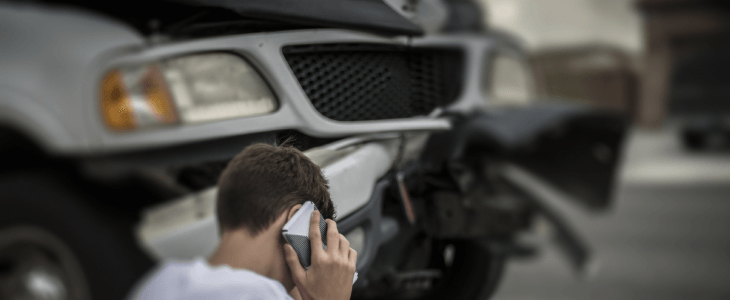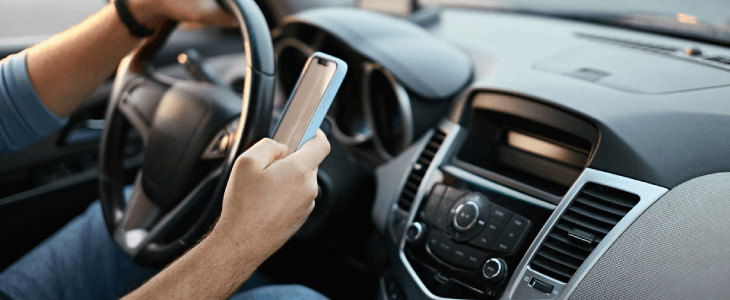Car accidents open a world of complications for victims who must deal with a host of issues like getting medical attention, dealing with insurance, and replacing their vehicles. The process can be overwhelming and confusing as the victim struggles to understand what steps they should take. Fortunately, experienced counsel can walk you through the process by handling the legal paperwork and working for a fair amount of monetary compensation.
Were you injured in a car crash and you’re not sure what to do next? Start with the trusted advocates of Carden Dotzler Hammond, PLLC. Here we explain how we represent clients in their automobile accident claims.
Handling the Insurance Companies and Legal Paperwork
There’s a good chance that the insurance company representing the at-fault party (whether it’s a driver or someone else) is not going to make you a settlement offer that fairly compensates you for your medical and property losses. Additionally, speaking to these companies on your own is risky because they use a number of tactics to try to obtain and use information against you. It’s better to allow a knowledgeable car accident lawyer to handle the insurers so you can focus on your recovery.
The same is true for all legal paperwork that you, as the victim, must file with the courts. As dedicated personal injury attorneys, we understand not only the substantive laws concerning car crash claims but also the court rules and procedures that govern the filing, service, and litigation process. We take care of all court paperwork so you don’t have to worry about it.
Mediation and Negotiation
Even if a lawsuit is filed against the at-fault party, there is no reason that the matter will inevitably go to trial. Courts in Syracuse encourage parties to negotiate and mediate their claims so parties can avoid the time, stress, and money of extensive litigation. During mediation, a neutral third party mediator will facilitate settlement discussions to try to reach a fair resolution to the matter.
Legal counsel can represent you during mediation and it is strongly advised that you do have a lawyer since the mediator cannot provide legal advice. Our car accident lawyer can serve in this role by advising you of the consequences of accepting a proposed settlement and negotiating on your behalf for the best possible terms. That way, you can make the ultimate decision of whether to settle the case or proceed to trial.
Understanding the Value of Your Case
As seasoned car accident lawyers, we understand how to determine a fair value of a crash victim’s claim. Many of a victim’s losses will not take effect until months or even years after the accident is over. Some examples of these future damages are medical expenses (e.g. long-term care, nursing, and disability) and lost earning capacity (e.g. future lost wages, bonuses, promotions, and benefits due to the consequences of the wreck).
It’s important to understand that once you sign a settlement agreement or a court renders a verdict, you will not get another chance to ask for more money later. That’s why we rely on expert witnesses to help testify as to such matters as a victim’s long-term medical needs and the effects of the accident on their career prospects. Our reliable network of experts is ready to testify on your behalf so you can claim the compensation you deserve.
Taking Your Case to Court
If a fair settlement cannot be reached through mediation and out-of-court negotiations, then going to court and presenting your case to a jury is the best option. As experienced litigators, we know how to make a compelling argument for the maximum amount of compensation available under law. We will manage all courtroom hearings and proceedings as we represent your interests.
Learn more about why Syracuse accident victims trust CDH Law to fight for them. Contact us today by completing our online form or giving us a call. We can schedule your free and confidential initial consultation today.











